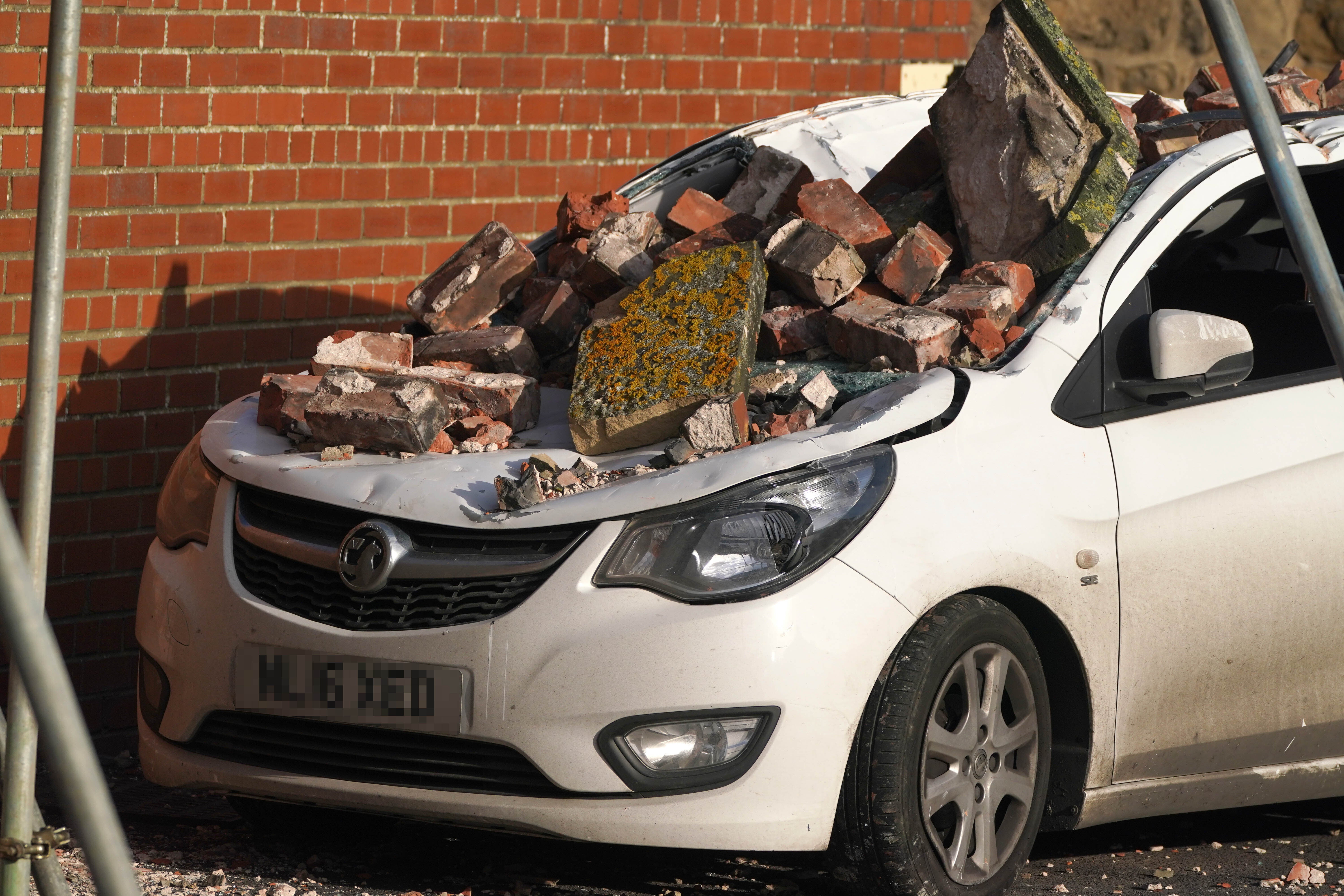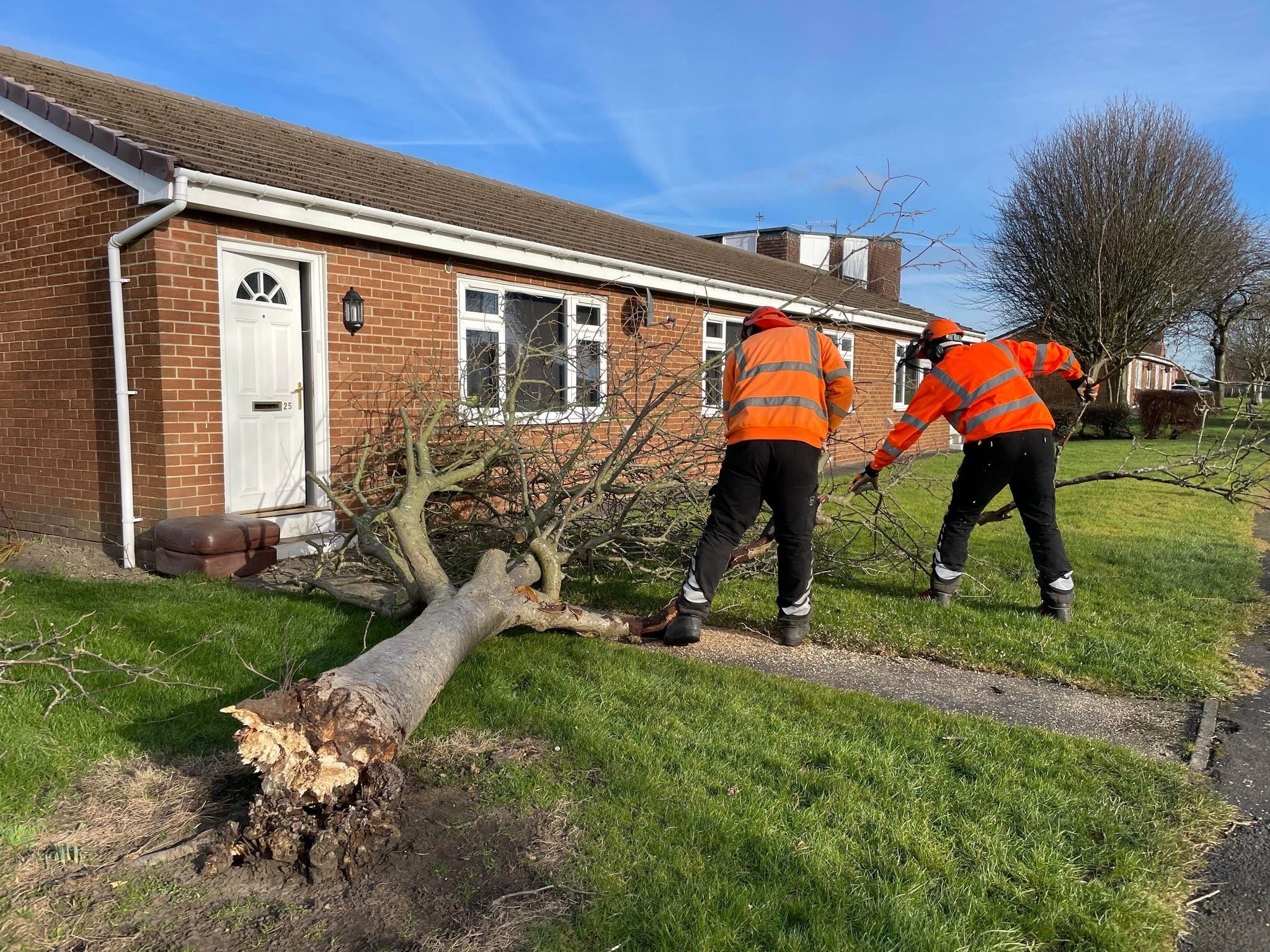
Thousands of homes remained without power as back-to-back storms hampered efforts to reconnect them.
The latest, Storm Corrie brought winds of more than 90mph to Stornoway in the Western Isles of Scotland late on Sunday.
It followed Storm Malik which blew down trees, damaged power lines and ripped roofs off homes in the North of England and Scotland on Saturday.
According to reports, around 37,000 homes in northern Scotland were without power after the two storms which came within 48 hours of each other.
On Monday morning, Northern Powergrid said 7,000 customers were without power – 4,000 still affected by Storm Malik and another 3,000 by Corrie.
In a statement on the firm’s website, it said: “There is still a lot to do – we have around 200 incidents to restore supplies to those customers across Northumberland County Durham and Tyne and Wear.

“We have imported additional resources into the region and we are confident that we will successfully restore supplies for the vast majority of those customers – and we intend to do everything we can to get them all done.
“There is the possibility that a small number will run into Tuesday – the weather has caused us some additional disruption overnight that we also need to handle during the course of today.”
The firm insisted it had learned lessons from November’s Storm Arwen, which led to widespread complaints about the way it communicated with customers who had lost power.
It said Storm Malik was worse than forecast and led to around 80,000 people losing power – mainly in County Durham and Northumberland – but it was not as devastating as Storm Arwen as there was no snow and ice this time.
Stewart Sexton, 58, from Alnwick, Northumberland, lost power for 35 hours over the weekend, having previously been badly affected by Storm Arwen.
Describing himself as “enraged”, he told the PA news agency: “It’s all about a lack of maintenance of the infrastructure and no resilience plan from Northern Powergrid.
“We have had powercuts for 298 hours since 26th November, just over two months.
“By any reckoning that must be unacceptable and it indicates that there is certainly something wrong with the infrastructure around our communities while neighbouring larger villagers didn’t lose power at all.”
Work had been put in place to make sure Scotland was better prepared too, Deputy First Minister John Swinney said.
He told the BBC’s Good Morning Scotland radio programme: “I think it was very clear that there was a much stronger join-up between the power companies and the local resilience partnerships over the course of the weekend.

“There has been and continues to be an extensive network of various centres and catering facilities available for people around about the communities that are affected by the loss of power, and individual contacts by the power companies with individuals.”
A nine-year-old boy in Staffordshire and a 60-year-old woman in Aberdeen died after trees were torn down on Saturday.
Several schools in Aberdeenshire and Northumberland said they will be shut or will delay opening on Monday.
Storm Corrie pushed into the North Sea in the early hours of Monday, leaving cold and blustery conditions behind.
Met Office spokesman Richard Miles said the next few days will be much calmer before a cold snap with wintry showers hits the UK on Thursday, followed by milder weather over the weekend.







